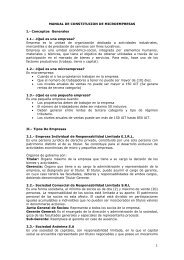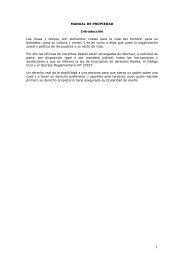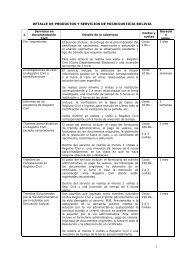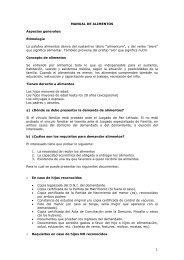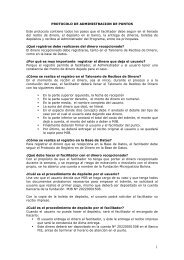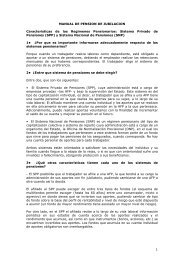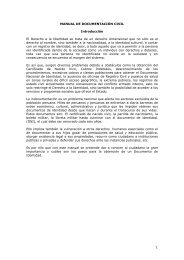ICISS report - International Coalition for the Responsibility to Protect
ICISS report - International Coalition for the Responsibility to Protect
ICISS report - International Coalition for the Responsibility to Protect
You also want an ePaper? Increase the reach of your titles
YUMPU automatically turns print PDFs into web optimized ePapers that Google loves.
The <strong>Responsibility</strong> <strong>to</strong> <strong>Protect</strong> 71<br />
<strong>the</strong> post-Cold War era, <strong>the</strong>re are real constraints on how much spare capacity exists <strong>to</strong> take<br />
on additional burdens. UN peacekeeping may have peaked in 1993 at 78,000 troops. But<br />
<strong>to</strong>day, if both NATO and UN missions are included, <strong>the</strong> number of soldiers in international<br />
peace operations has soared by about 40 per cent <strong>to</strong> 108,000. Even states willing in principle<br />
<strong>to</strong> look at new <strong>for</strong>eign military commitments are being compelled <strong>to</strong> make choices about<br />
how <strong>to</strong> use limited and strained military capabilities.<br />
8.11 In mobilizing political support <strong>for</strong> intervention <strong>for</strong> human protection purposes, as <strong>for</strong><br />
anything else, a great deal comes down <strong>to</strong> <strong>the</strong> leadership of key individuals and organizations.<br />
Someone, somewhere has <strong>to</strong> pick up <strong>the</strong> case and run with it. Political leaders are<br />
crucial in this respect, but <strong>the</strong>y are not <strong>the</strong> only ac<strong>to</strong>rs: <strong>the</strong>y are, <strong>for</strong> <strong>the</strong> most part, acutely<br />
responsive <strong>to</strong> <strong>the</strong> demands and pressures placed upon <strong>the</strong>m by <strong>the</strong>ir various political<br />
constituencies, and <strong>the</strong> domestic media, and <strong>the</strong>y are much influenced by what is put <strong>to</strong><br />
<strong>the</strong>m by <strong>the</strong>ir own bureaucracies. NGOs have a crucial and ever increasing role, in turn, in<br />
contributing in<strong>for</strong>mation, arguments and energy <strong>to</strong> influencing <strong>the</strong> decision-making<br />
process, addressing <strong>the</strong>mselves both directly <strong>to</strong> policy makers and indirectly <strong>to</strong> those who,<br />
in turn, influence <strong>the</strong>m. The institutional processes through which decisions are made will<br />
vary enormously from country <strong>to</strong> country, but <strong>the</strong>re are always those who are more<br />
responsible than o<strong>the</strong>rs and <strong>the</strong>y have <strong>to</strong> be identified, in<strong>for</strong>med, stimulated, challenged,<br />
and held <strong>to</strong> account: if everyone is responsible, <strong>the</strong>n no one is actually responsible.<br />
8.12 The trouble with most discussions of “political will” is that more time is spent<br />
lamenting its absence than on analyzing its ingredients, and working out how <strong>to</strong> use <strong>the</strong>m<br />
in different contexts. To reduce <strong>the</strong> issue <strong>to</strong> its bare essentials, what is necessary is a good<br />
understanding of <strong>the</strong> relevant institutional processes, as just mentioned, and good<br />
arguments. What constitutes a good argument will obviously depend on <strong>the</strong> particular<br />
context. But it is not <strong>to</strong>o much of an oversimplification <strong>to</strong> say that, in most political systems<br />
around <strong>the</strong> world, pleas <strong>for</strong> international action of <strong>the</strong> kind we are dealing with in this<br />
<strong>report</strong> need <strong>to</strong> be supported by arguments having four different kinds of appeal: moral,<br />
financial, national interest and partisan.<br />
8.13 As <strong>to</strong> moral appeal, preventing, averting and halting human suffering – all <strong>the</strong><br />
catastrophic loss and misery that go with slaughter and ethnic cleansing and mass starvation<br />
– are inspiring and legitimizing motives in almost any political environment. Political<br />
leaders often underestimate <strong>the</strong> sheer sense of decency and compassion that prevails in <strong>the</strong>ir<br />
elec<strong>to</strong>rates, at least when people’s attention is engaged (just as <strong>the</strong>y also underestimate <strong>the</strong><br />
public willingness, when well in<strong>for</strong>med, <strong>to</strong> accept <strong>the</strong> risk of casualties in well designed<br />
military interventions aimed at alleviating that suffering). Getting a moral motive <strong>to</strong> bite<br />
means, however, being able <strong>to</strong> convey a sense of urgency and reality about <strong>the</strong> threat <strong>to</strong><br />
human life in a particular situation. Un<strong>for</strong>tunately, this is always harder <strong>to</strong> convey at <strong>the</strong><br />
crucial stage of prevention than it is after some actual horror has occurred.<br />
8.14 The best financial argument is that earlier action is always cheaper than later action. If<br />
prevention is possible, it is likely <strong>to</strong> be cheaper by many orders of magnitude than responding<br />
after <strong>the</strong> event through military action, humanitarian relief assistance, postconflict<br />
reconstruction, or all three. In Kosovo, almost any kind of preventive activity – whe<strong>the</strong>r it<br />
involved more effective preventive diplomacy, or <strong>the</strong> earlier and sharper application of<br />
coercive preventive measures like <strong>the</strong> credible threat of ground-level military action – would<br />
have had <strong>to</strong> be cheaper than <strong>the</strong> $46 billion <strong>the</strong> international community is estimated <strong>to</strong><br />
have committed at <strong>the</strong> time of writing in fighting <strong>the</strong> war and following up with peacekeeping<br />
and reconstruction.



